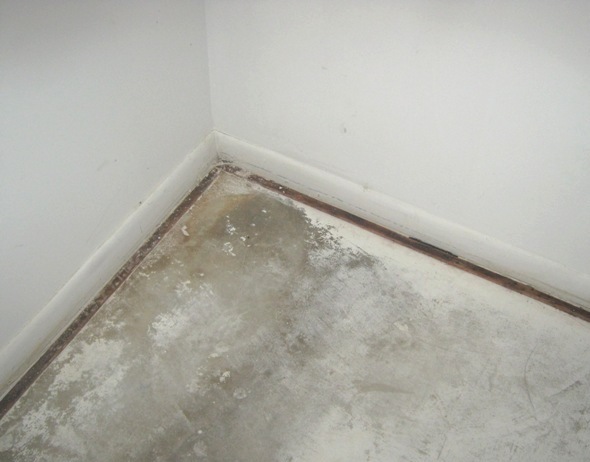Find a Mold Specialist Now
Click or Call, Toll-Free 24/7
Weakened Immune System
If you suffer from a weakened immune system, mold damage can be even more harmful to your health. Although many people experience only mild-to-moderate effects, long-term exposure to the presence of indoor mold can sometimes lead to more serious issues, including memory loss, joint pain and depression. When your immune system is already weak due to a preexisting medical condition, you may also be more susceptible to developing a reaction to mold.
What Causes a Weakened Immune System?
A weakened immune system can occur for a variety of reasons, including a chronic illness. Taking certain drugs may also weaken or suppress your immune system. If you are considered to be immunosuppressed, you will need to take extra measures to prevent failing ill, such as avoiding crowds or taking extra care to stay away from places where germs thrive.
Is Your Immune System Working at Peak Capacity?
A healthy immune system allows you to fight off infections and maintain good overall health. If you feel like you’re constantly sick, or it takes you a long time to get over minor bugs, your immune system may not be working as well as it should. Signs and symptoms of immunodeficiency can include frequent infections, digestive problems and blood disorders such as anemia.
If you suspect that your immune system has been compromised, you should see a doctor for a complete check-up. Sometimes, you’ll simply need to be more conscious of ways to maintain a healthy immune system. Finding ways to manage your stress can also help when your immune system is low. You can make an effort to engage in healthy habits like following a well-balanced diet, making sure you get enough sleep, and exercising consistently to promote your overall health. If a doctor determines that your immune system is not working as it should, they can suggest ways to help you feel better.
Concerns about Indoor Mold
If you suffer from a chronic medical condition or are considered to be immunosuppressed in any way, living with mold can be an even greater cause for concern. Some people are more sensitive to mold exposure, while others may show little to no symptoms. If you are more prone to being affected by mold, the long-term effects of living with it inside your home could hamper your health. Over time, the combination of living with mold while your immune system is weak can make you susceptible to other health problems, including increased infections.
Mold allergies are a common health complaint and can cause a variety of symptoms, including wheezing, a stuffy nose, or skin irritation. If not treated, mold allergies can make you miserable and affect your quality of life. In addition to allergies, indoor mold exposure has also been linked to increased upper respiratory illnesses. Some rare diseases have also been linked to toxic mold. According to the World Health Organization (WHO), clinical evidence has linked mold exposure to rare conditions such as chronic rhinosinusitis. If you suffer from a chronic lung illness, the U.S. Centers for Disease Control and Prevention (CDC) recommends staying away from areas that typically contain mold, such as compost piles and damp, wooded areas.
 Mold under carpets on tack strips
Mold under carpets on tack stripsPrevent Indoor Dampness to Help Create a Healthy Living Environment
Should you experience unexplained changes in your health, you may want to investigate your living space and rule out the presence of mold as a factor. You may not have a weakened immune system from indoor mold exposure, but if something else is causing you to feel sick, you may be more susceptible to issues stemming from living in a damp environment where mold can thrive.
Sometimes environmental factors, such as exposure to indoor mold, can cause health problems in those with a weakened immune system. Excess moisture in a home, if not taken care of, can eventually lead to mold issues. Most people think that indoor dampness, which can lead to mold, is the result of one large event, like a basement flood or a plumbing leak. This is not always the case. According to the WHO, moisture can also enter a building through indoor air, or occupants’ activities. Over time, this moisture creates a damp environment which can lead to the growth of mold spores.
If you think mold may be present in your home, keep an eye out for condensation on indoor surfaces. Use a dehumidifier in damp areas of your home, such as the basement. Turn on fans in the shower area or find other ways to relieve the humidity. Maintain your plumbing and HVAC systems to ensure they operate efficiently and are properly maintained. By taking steps every day to prevent excessive moisture in your home, you’ll make it harder for mold to grow.
Getting Answers about Mold in Your Home
If you suspect that mold is present in your home but can't see it, consider having your house tested. To find a local testing professional, you can follow this link to get a list of mold testing companies in your area. You want to find someone with experience who can answer your questions about the removal process. Once you’ve received the results of the test, you can decide whether or not you want to take further steps to remediate the problem. Even if mold is not found to be an issue, by testing your home, you’ll gain the peace of mind you may need to move forward.
Return From Weakened Immune System To Our Symptoms Of Toxic Mold Exposure Page
Black Mold Health Symptoms Home Page





